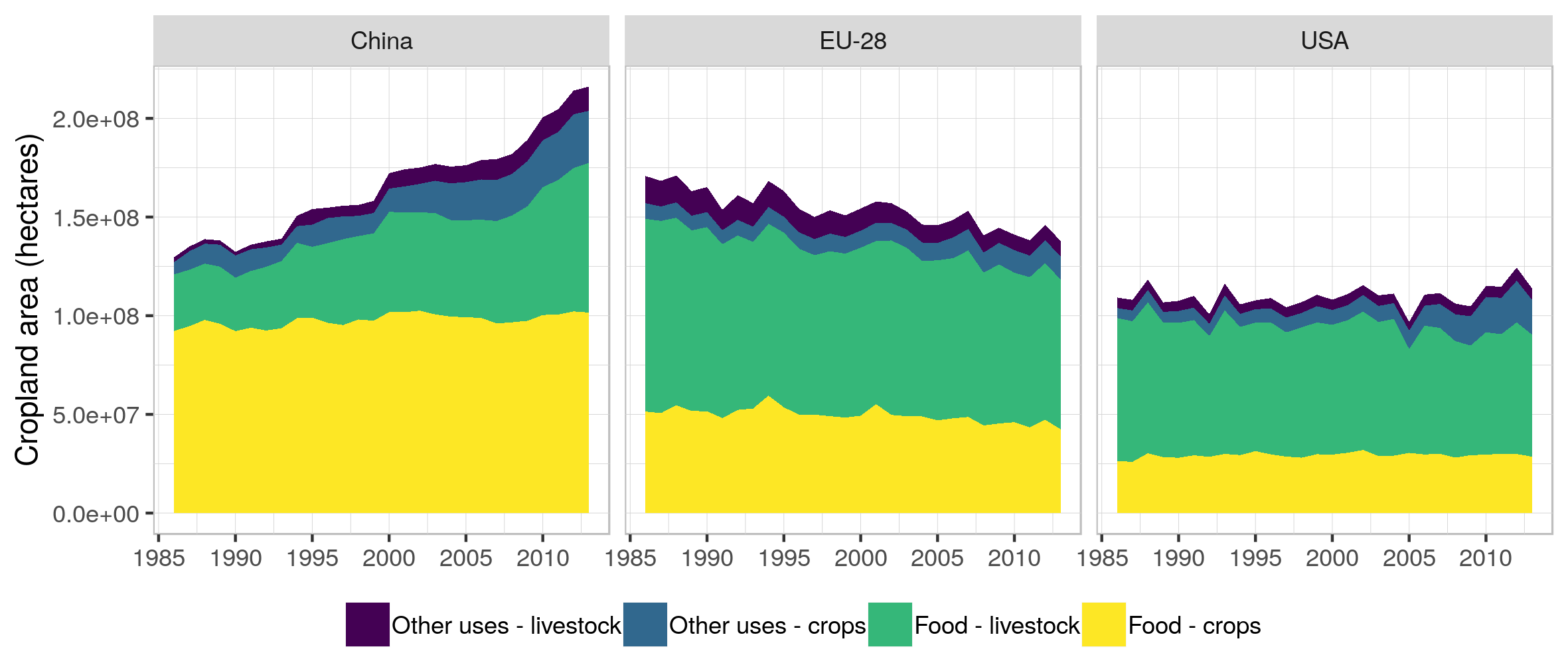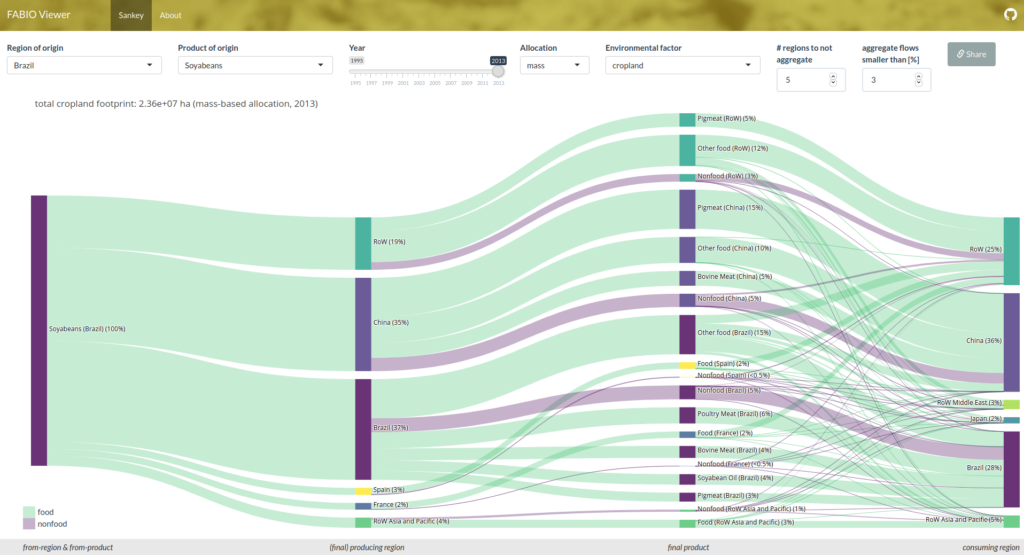Food and Agriculture Biomass Input-Output Model (FABIO)

FABIO provides a set of multi-regional physical supply-use and input-output tables covering global agriculture and forestry. The work is based on mostly freely available data from FAOSTAT, IEA, EIA, and UN Comtrade/BACI. FABIO currently covers 191 countries plus Rest-of-World, 121 processes and 130 commodities for 1986-2013.
For more details see Bruckner et al. (2019).

Cropland footprint of China, EU-28 and USA
Our findings reveal characteristic patterns and distinct trends for the cropland footprint of China, the EU-28 and the USA. While animal source foods take the highest but declining shares in the EU and the US cropland footprint, their place is still only second after plant-based food in China, albeit showing a rapid increase throughout the time series.
Other uses, i.e. mainly industrial non-food uses, are particularly increasing in China and the US. In the EU, we see a shift from animal-based to plant-based non-food products.
The database and all R scripts are available to the research community (under the CC-BY-NC-SA 4.0 license and the GNU General Public License v3, respectively).
Code repositories
- FABIO: https://github.com/fineprint-global/fabio
- FABIO hybrid: https://github.com/fineprint-global/fabio-hybrid
- Structural path analysis: https://github.com/fineprint-global/fabio-spa
Data publication
Version 1.1
- Software: https://doi.org/10.5281/zenodo.6620763
- Database: https://doi.org/10.5281/zenodo.2577066
Publications
- Bruckner, M., Wood, R., Moran, D., Kuschnig, N., Wieland, H., Maus, V., Börner, J. 2019. FABIO – The Construction of the Food and Agriculture Input–Output Model. Environmental Science & Technology. DOI: 10.1021/acs.est.9b03554
- Bruckner, M., Giljum, S., 2018. FABIO: Food and Agriculture Biomass Input-Output model. FINEPRINT Brief No. 3. Vienna University of Economics and Business, Austria. www.fineprint.global/briefs/fabio
FABIO Viewer
Code repository: https://github.com/fineprint-global/io-visualization
Note: Please use the following reference disclaimer when citing visualizations created using this tool (replace Soyabeans, Brazil and 2013 with the appropriate values for your use case):
WU Vienna (2019): Soyabeans from Brazil (2013). Visualizations based upon the hybrid FABIO model, v1.0. Vienna University of Economics and Business. Online available at: fineprint.global/fabio-viewer (licenced under CC BY 4.0)




